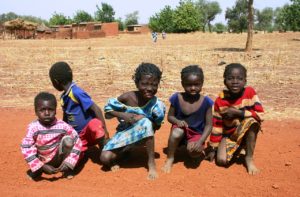Improving Healthcare in Burkina Faso

Healthcare in Burkina Faso is not often in the eye of the media. War and violence have heavily affected the country and taken a toll on its healthcare system. Due to the escalation of violence and lack of financial means, roughly 1.5 million people have seen a significant reduction in their access to healthcare since 2019.
Funding and Outcomes
Violence is not the only problem that affects Burkina Faso’s healthcare system. Healthcare in Burkina Faso also suffers from a past and present lack of financial means to hire healthcare workers. The 5% government funding towards the healthcare system reflects this, which was $82 per person as of 2016. To compare, the United State’s government funding is at 17.7% and Canada’s is 11.6%.
The inability to hire experienced medical personnel has lead to less than one physician per 10,000 people, 3.57 nurses per 10,000 people and 2.39 midwives per 10,000.
This lack of experienced medical personnel strongly affects the outcomes of Burkina Faso’s healthcare system. For example, the minimum accessibility to midwives has led to a 21/1,000 stillbirth rate. Burkina Faso’s healthcare system also has a 49% chance of infant mortality.
Access to Resources
Though war and violence have put a strain on Burkina Faso’s healthcare system, there is also the issue of an inability for households to access resources. More than 45% of Burkina Faso’s population lives on less than $1.25 per day, and as a result, many are not able to afford and access proper food and water. The fact that 10.4% of children under 5 suffer from acute malnutrition illustrates this. Acute malnutrition is a form of undernutrition that can range in severities and cause growth stunting. This affects 30.2% of children in Burkina Faso.
Additionally, there are roughly 3 million people in Burkina Faso who cannot access improved water sources, which causes many digestive issues as well as dehydration. Another issue that Burkina Faso’s healthcare system has to bear is poor sanitation. Poor sanitation can lead to increased transmission of diseases. For example, only 22% of people have access to a toilet, which causes over 2,800 childhood deaths per year for children under 5.
Overall, the low individual income for the citizens of Burkina Faso acts as a barrier between them and healthcare. The fact that healthcare in Burkina Faso does not receive the necessary funding to hire experienced medical personnel, purchase quality products and afford and access technology negatively impacts the quality of care that each individual obtains.
Work to Improve Healthcare in Burkina Faso
Though Burkina Faso’s healthcare system has a long way to go, the United States and the rest of the world have been providing aid. For example, USAID is currently granting amazing services to Burkina Faso in the form of efforts to alleviate child hunger, provide malaria treatment and implement prevention programs targeting children under 5 and pregnant women. As one of the largest donors in the fight against malaria, the United States has contributed to a 62% reduction in mortality from it over the past five years.
In 2018, the World Bank approved an $80 million International Development Association grant and $20 million from the Global Financing Facility (GFF) in Support of Every Woman, Every Child. This money went toward supporting government efforts to increase accessibility and quality of health services in Burkina Faso.
Burkina Faso’s Efforts
Health minister Nicolas Meda has been working to achieve improvement to Burkina Faso’s healthcare system. In 2018, he welcomed the support of the Burkina Faso Reference Group. With the help of the group, the government identified four main goals it wished to achieve; expanding the current access to family planning, ensuring proper food and nutrition, eliminating infectious disease and revitalizing primary healthcare. Meda also wants to limit the household spending on healthcare to 20% instead of its 32% average which could increase households’ abilities to spend money on food, education, etc.
Global Context
Burkina Faso is a country that highlights the importance of foreign aid and healthcare protections. Without U.S foreign aid, the state of Burkina Faso’s healthcare system could be much worse than it is today. Through continued efforts, healthcare in Burkina Faso should continue to improve.
– Hope Arpa Chow
Photo: Pixabay
